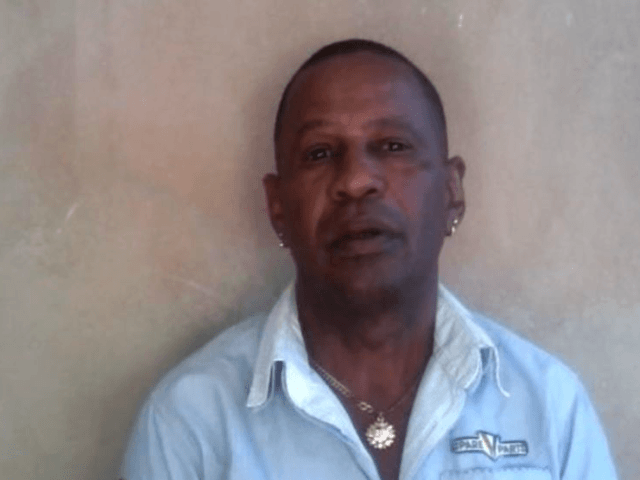Cuban dissident groups confirmed on Tuesday that the communist regime had agreed to liberate Tomás Núñez Magdariaga, a member of the pro-democracy Patriotic Union of Cuba (UNPACU), on Monday after 62 days on hunger strike.
Núñez Magdariaga spent over a year in prison on false charges of contempt against the government. A Cuban government agent later accused him of attacking a government officer, but confessed a month ago to fabricating the claim as part of his job as a communist agent, then attempted to commit suicide.
Núñez Magdariaga began his hunger strike on August 14 and refused both food and water, insisting he would only eat if released from prison. His case attracted the attention of NGOs like Amnesty International, global organizations like the Organization of American States (OAS), and the U.S. State Department. The Cuban government released him a day before the United States hosted an event called “Jailed for What?” highlighting the brutal treatment of political prisoners on the island.
The U.S.-based Martí Noticias reported Núñez Magdariaga’s release late Monday and published an audio interview with the dissident. He told the outlet that the prison the government had kept him in had handcuffed his hands and feet for the past 19 days and that he believed the only reason they released him was the international pressure on his behalf.
“If it weren’t for the campaign that my brothers here and you in the United States did for me, they wouldn’t free me,” he told Martí. “I tell the United Nations, keep struggling for my brothers in prison … I ask the public to please keep speaking for us, we need you.”
He also encouraged the prisoners themselves to rise up against the regime. “If I could endure 62 days [of a hunger strike] at 65 years old … they can, too. This dictatorship can’t take anymore.”
Magdariaga also appeared in a video published Tuesday by UNPACU encouraging further civil disobedience against the regime. UNPACU members noted that Magdariaga appeared to endure significant torture and ill treatment in prison in part due to being black and gay, in addition to refusing to back down from his pro-democracy stance.
A widespread global campaign demanded Magdariaga’s release before he died on his hunger strike. Last week, Amnesty International made a call on Havana to release him.
“People who have been detained for exercising their freedom of expression or peaceful assembly in Cuba repeatedly tell Amnesty International about the difficulties they face in accessing a lawyer of their choice and criticize the lack of independence of public lawyers who often fail to exercise due diligence in their cases,” the outlet noted, adding that Núñez Magdariaga was in “critical condition” at the time of writing.
OAS chief Luis Almagro issued a statement this month also urging his release: “The Cuban regime must immediately liberate activist Tomas Núñez, whose life is in danger after over a month on hunger strike and is in prison on false charges … the government is responsible for his life.”
The U.S. State Department, which made similar entreaties to the Cuban government over his case, welcomed his release on Tuesday:
In Cuba, dissidents focused their attention to praying for Núñez Magdariaga. Cuba Decide, a movement dedicated to urging the Cuban government to hold free and fair elections of which Núñez is a member, encouraged its members and supporters to pray for his safety to Our Lady of Charity, the patron saint of Cuba.
The Free Yorubas of Cuba, a group dedicated to dissidents who follow the Afro-Cuban religion commonly referred to as santería, posted videos on social media last week alongside dissidents praying to their gods for Magdariaga.
“We know that this government does not forgive the black race when it raises its voice … we belong to a black religion, this religion was born in Nigeria… we want to raise our voices and prayer for that black man,” one group member says in the video, expressing the hope that the Christian god or the African gods Eleggua and Changó “help him not die … or at least send him spiritual strength.”
Núñez Magdariaga began his hunger strike after completing a year-long prison sentence for “threats” against the regime. Officials accused him of another charge against former state police officer Aldo Rosales Montoya and informed him that he was to stay another year in prison, prompting the strike. Relatives of the prisoner repeatedly accused the government of pressuring them to force him to eat and keeping his true health status a mystery, belatedly telling relatives he was in “critical” condition and suffering liver failure.
Rosales ultimately confessed to fabricating the charges against Núñez Magdariaga.
At least 13 individuals have died while undergoing a hunger strike since the Cuban Revolution took over the country in 1959, the most recent case in 2012.

COMMENTS
Please let us know if you're having issues with commenting.